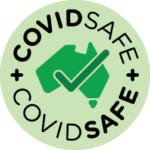Home > Single Post

For individuals with disabilities striving for greater independence, developing strong money management skills is an essential component of successful independent living. From budgeting and banking to understanding credit and financial literacy, mastering these skills can empower you to take control of your finances and achieve your goals.
Building a Solid Foundation: Budgeting Basics
The cornerstone of effective money management is creating and sticking to a budget. A well-crafted budget not only helps you track your income and expenses but also enables you to prioritize your spending, identify areas for potential savings, and plan for future financial goals.
Start by listing all your sources of income, including any government benefits, disability support payments, or employment earnings. Then, categorize your expenses into essential (rent, utilities, groceries) and non-essential (entertainment, dining out, subscriptions) categories. Once you have a clear picture of your income and expenses, you can allocate funds accordingly and make adjustments as needed.
Embracing Technology: Budgeting Apps and Tools
In today’s digital age, numerous budgeting apps and online tools can simplify the process of tracking your finances. Apps like Mint, YNAB (You Need a Budget), and PocketGuard offer user-friendly interfaces, automatic transaction categorization, and visual representations of your spending habits. These tools can be particularly helpful for individuals with disabilities who may find traditional pen-and-paper budgeting methods challenging.
Banking Basics: Choosing the Right Account
Selecting the right bank account is another crucial step in managing your finances effectively. Consider factors such as fees, interest rates, accessibility features, and customer service when choosing a bank or credit union. Many financial institutions offer specialized accounts for individuals with disabilities, which may include fee waivers, customized services, or accessible banking options.
Understanding Credit and Debt Management
Building and maintaining good credit is essential for achieving financial independence. A strong credit score can open doors to lower interest rates on loans, better housing options, and even employment opportunities. Be mindful of your credit utilization ratio (the amount of credit you’re using compared to your total available credit), and make timely payments to avoid damaging your credit score.
If you find yourself struggling with debt, seek professional assistance from a credit counselor or a non-profit debt management organization. They can provide guidance on debt consolidation, negotiating with creditors, and developing a realistic repayment plan.
Financial Literacy and Education
Continuous learning is key to mastering money management. Take advantage of free financial literacy resources, such as online courses, workshops, or webinars offered by non-profit organizations, community centers, or government agencies. These educational opportunities can help you stay up-to-date with the latest financial tools, regulations, and best practices.
At Maven Care, we understand the importance of financial independence for individuals with disabilities. Our team is dedicated to supporting you on your journey toward self-sufficiency by providing resources, guidance, and encouragement every step of the way. Mastering money management is an empowering skill that can unlock numerous opportunities and contribute to a fulfilling, independent life.

We are here to assist you.
© Copyright 2024. All Rights Reserved. Maven Care